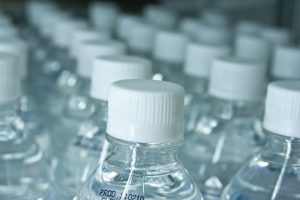 Distillation is water that has been turned into a vapor so that its impurities are left behind. Then, by condensing, it is turned back to pure water.
Distillation is water that has been turned into a vapor so that its impurities are left behind. Then, by condensing, it is turned back to pure water.
In, nature, the sun evaporates water into the air, where it rises and is captured by clouds. With the colder temperatures of the clouds, the evaporated water (steam) is condensed back into water and it falls back onto the earth as pure rain water.
With our distillers, we duplicate this process. In our distiller; water is evaporated, the steam is captured, leaving the impurities (bacteria, metals, lead, etc.) behind. The steam is then condensed and collected, giving us extremely pure water.
High purity water quality should be monitored for two things. First, high purity water should be monitored by the level of total dissolved solids (TDS) in the water. In layman’s terms, one part per million total dissolved solids is equivalent to one milligram per liter of dissolved solids in the water. The U.S. Federal guidelines call for high purity water to have a TDS level of 10 ppm or less. Tap water quality varies from day to day, but typically ranges from 200 to 300 ppm TDS. PLANT EARTH’s® Distilled Drinking Water must be less than 1ppm TDS, or it is not bottled. Our TDS standard then, is 10 times more rigid than the federal standards for high purity water.
Secondly, we must be concerned about the level of biological contamination in water. Bacteria, fungi and parasites (such as giardia), have caused sickness in tens of thousands of people each year. One of the real advantages of distilled water is the confidence that we can have in its biological contamination removal. Every drop of distilled water had been boiled, which is the single most effective protection against bacterial contamination. WE insist on distillation to protect our customers.
All in all, the water you are drinking is of the highest quality water available in the world. Martinstill Corp., PLANET EARTH’s® founder is a Lincoln manufacturing company which specialized in building distillation systems for hospitals, universities, bottling companies, laboratories, and other high purity water applications, including several distillers at the University of Nebraska.